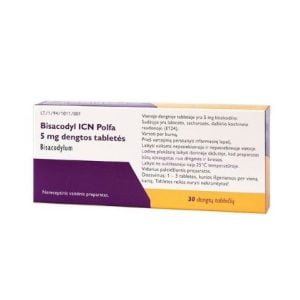Description:
Omeprazole is a medication that belongs to a group of medicines called proton pump inhibitors. It contains the active ingredient Omeprazole, which works by reducing the amount of acid produced in the stomach.
Omeprazole capsules are used to treat various conditions, including:
- Gastroesophageal reflux disease.
- Ulcers in the upper part of the intestine.
- Infected ulcers.
- Ulcers caused by NSAID medications.
- Excessive stomach acid caused by pancreatic growth.
Common side effects:
Common side effects of Omeprazole, occurring in more than 1 in 100 people, may include:
- Headaches.
- Nausea.
- Vomiting or diarrhea.
- Stomach pain.
- Constipation.
- Gas.
- Dizziness or drowsiness.
- Difficulty falling asleep.
Dosage:
Your doctor will prescribe the appropriate dosage of Omeprazole based on your condition and age. The recommended doses are as follows:
Adults:
- To treat symptoms of GERD (such as heartburn and acid regurgitation) with slight damage to the food pipe (gullet), the usual dose is 20 mg once a day for 4-8 weeks.If the gullet has not healed, you may need to take a higher dose of 40 mg for an additional 8 weeks as recommended by your doctor. Once the gullet has healed, the usual dose is 10 mg once a day. If there is no damage to the gullet, the usual dose is 10 mg once a day.
- To treat ulcers in the upper part of the intestine (duodenal ulcer), the usual dose is 20 mg once a day for 2 weeks. If the ulcer has not healed, the same dose can be continued for another 2 weeks. If the ulcer does not fully heal, the dose can be increased to 40 mg once a day for 4 weeks.
- To treat ulcers in the stomach (gastric ulcer), the usual dose is 20 mg once a day for 4 weeks. If the ulcer has not healed, the same dose can be continued for another 4 weeks. If the ulcer does not fully heal, the dose can be increased to 40 mg once a day for 8 weeks.
- To prevent the recurrence of duodenal and stomach ulcers, the usual dose is 10 mg or 20 mg once a day. The dose may be increased to 40 mg once a day.
- To treat ulcers caused by NSAIDs, the usual dose is 20 mg once a day for 4-8 weeks.
- To prevent duodenal and stomach ulcers while taking NSAIDs, the usual dose is 20 mg once a day.
- To treat ulcers caused by Helicobacter pylori infection and prevent their recurrence, the usual dose is 20 mg of Omeprazole twice a day for one week. Two antibiotics (such as amoxicillin, clarithromycin, or metronidazole) will also be prescribed.
- To treat excessive stomach acid caused by a pancreatic growth (Zollinger-Ellison syndrome), the usual dose is 60 mg daily. The dose and duration of treatment will be determined by your doctor.
Children:
- For children over 1 year of age and weighing more than 10 kg, the doctor will determine the dose based on their weight and make a recommendation to treat symptoms of GER
- To treat ulcers caused by Helicobacter pylori infection and prevent their recurrence in children over 4 years of age, the doctor will determine the dose based on the child’s weight. The doctor will also prescribe two antibiotics, such as amoxicillin and clarithromycin.
How to use:
To ensure optimal effectiveness, it is advisable to take Omeprazole capsules in the morning. You can consume them with or without food, but it is important to swallow the capsules whole with half a glass of water. Please refrain from chewing or crushing the capsules as they contain coated pellets that protect the medicine from stomach acid degradation. Take care not to damage the pellets.
Ingredients: Each Omeprazole capsule contains 20mg of Omeprazole as the active ingredient. The other ingredients include Sugar Spheres (consisting of Maize Starch and Sucrose), Sodium Laurilsulfate, Anhydrous Disodium Phosphate, Mannitol, Hypromellose, Macrogol 6000, Talc, Polysorbate 80, Titanium Dioxide (E171), Methacrylic Acid Ethyl Acrylate Copolymer (1:1), Gelatin, and Quinoline Yellow (E104).
Warnings:
- Keep Omeprazole out of the reach and sight of children.
- Do not exceed the recommended dose.
- Avoid taking Omeprazole if you are allergic to any of the ingredients.
- Consult your doctor before taking Omeprazole if you experience unexplained weight loss, have difficulty swallowing, stomach pains, vomit blood or food, pass black stools, suffer from diarrhea, or have severe liver problems.
- Inform your doctor if you are taking any other medications or if you are pregnant or breastfeeding.







Aino –
Amazing prices and good products. Will buy again for sure.